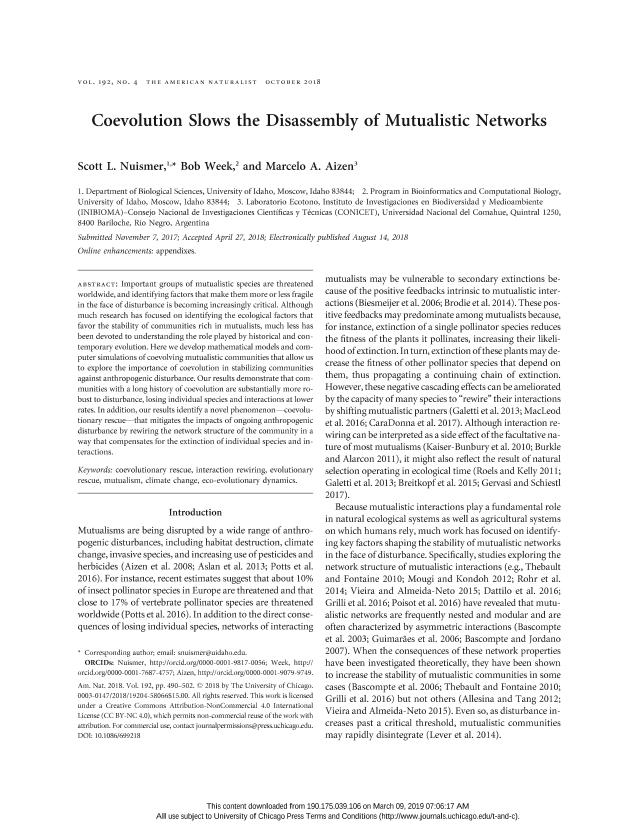Artículo
Coevolution slows the disassembly of mutualistic networks
Fecha de publicación:
14/07/2018
Editorial:
University of Chicago Press
Revista:
American Naturalist
ISSN:
0003-0147
Idioma:
Inglés
Tipo de recurso:
Artículo publicado
Clasificación temática:
Resumen
Important groups of mutualistic species are threatened worldwide, and identifying factors that make them more or less fragile in the face of disturbance is becoming increasingly critical. Although much research has focused on identifying the ecological factors that favor the stability of communities rich in mutualists, much less has been devoted to understanding the role played by historical and contemporary evolution. Here we develop mathematical models and computer simulations of coevolving mutualistic communities that allow us to explore the importance of coevolution in stabilizing communities against anthropogenic disturbance. Our results demonstrate that communities with a long history of coevolution are substantially more robust to disturbance, losing individual species and interactions at lower rates. In addition, our results identify a novel phenomenon—coevolu-tionary rescue—that mitigates the impacts of ongoing anthropogenic disturbance by rewiring the network structure of the community in a way that compensates for the extinction of individual species and interactions.
Archivos asociados
Licencia
Identificadores
Colecciones
Articulos(INIBIOMA)
Articulos de INST. DE INVEST.EN BIODIVERSIDAD Y MEDIOAMBIENTE
Articulos de INST. DE INVEST.EN BIODIVERSIDAD Y MEDIOAMBIENTE
Citación
Nuismer, Scott L.; Week, Bob; Aizen, Marcelo Adrian; Coevolution slows the disassembly of mutualistic networks; University of Chicago Press; American Naturalist; 192; 4; 14-7-2018; 490-502
Compartir
Altmétricas




